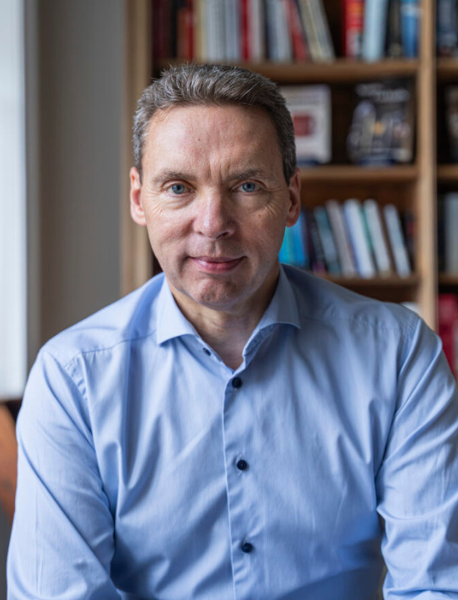The impact of publishing with purpose
Nigel Portwood
“In this time of uncertainty, publishers play an important role in furthering knowledge of the world’s most pressing topics. The ideas conveyed through publishing can spark debate and drive progress by helping people to understand the world around them.”

How can we ensure the information we publish is credible, robust, and dispersed equitably?
For many years now, we’ve been living in a state of constant change and uncertainty; from rapid technological advances to the real-life impact of climate change that we see playing out across the globe, it’s difficult to predict what the immediate future may bring.
In this time of uncertainty, publishers play an important role in furthering knowledge of the world’s most pressing topics. The ideas conveyed through publishing can spark debate and drive progress by helping people to understand the world around them.
Last week, we published our latest Responsible Publishing Report, reflecting our ongoing commitment to operating responsibly while supporting our people and communities worldwide. It showcases our achievements from the past year and speaks to our ambitions for the future, outlining the steps we are taking to align with the UN’s Sustainable Development Goals (SDGs).
But responsible publishing isn’t just about producing robust and credible content; it’s about ensuring that it is disseminated in an equitable way. This can be achieved in a number of ways; from enabling open access to make high-quality research available to all, to advancing the principles of diversity and inclusion through representation of a wide range of backgrounds that better reflect the communities we serve. It’s also about ensuring our publishing is sustainable; considering our impact on the environment and taking steps to reduce it wherever possible.
World Environment Day—which takes place next week on 5th June—marks a moment in the calendar to take stock of the current state of the planet and address what needs to be done to combat the complex challenges. This comes at a crucial time, with scientists recently warning that we are set to experience new record temperatures in the next five years, rising more than 1.5C above pre-industrial levels.
At OUP, we have a continued commitment to raising awareness about social and environmental issues among learners, educators, and researchers worldwide. Earlier this year, thousands of people across the world joined us for the Oxford Forum; an online event which was aligned to the UN’s Sustainable Development Goals and brought together experts from our global community to discuss the practical steps we can all take towards Quality Education, Climate Action, and Reduced Inequalities. And in our Responsible Publishing Report, we detail how, through the content we publish, we aim to support new thinking about sustainable development challenges and solutions and, most importantly, inspire action.
When it comes to understanding the ongoing climate crisis and the future developments we may have to grapple with, science education plays a critical role. As well as teaching people the basics around climate change—what causes it and the impact it has on our lives—it can also equip young people with the skills to carry out scientific enquiry and interpret information; skills which, are the foundations of developing solutions, making informed decisions, and taking personal responsibility in tackling global issues. When we surveyed teachers about the evolution of science education, they described how cognitive skills need to be supported, such as good scientific literacy and the ability to process and understand data. And at a time where anyone can position themselves as an expert online, these skills can provide the ability to interrogate information in order to distinguish between fact and fiction; a challenge I’ve discussed in more detail previously.
To further our commitment, we are proud to have collaborated with the Organisation for Economic Co-operation and Development (OECD) to develop the PISA 2025 Science Framework to help educators and policy makers understand the capabilities and progress of 15-year-olds worldwide—and therefore how equipped they will be to take on future challenges. The OECD and key experts in leading the development of the Framework will discuss it in depth at an online launch event this month and I look forward to learning more about the impact it will have.
The event, taking place on the 15th June is open to anyone to attend. You can register here.

